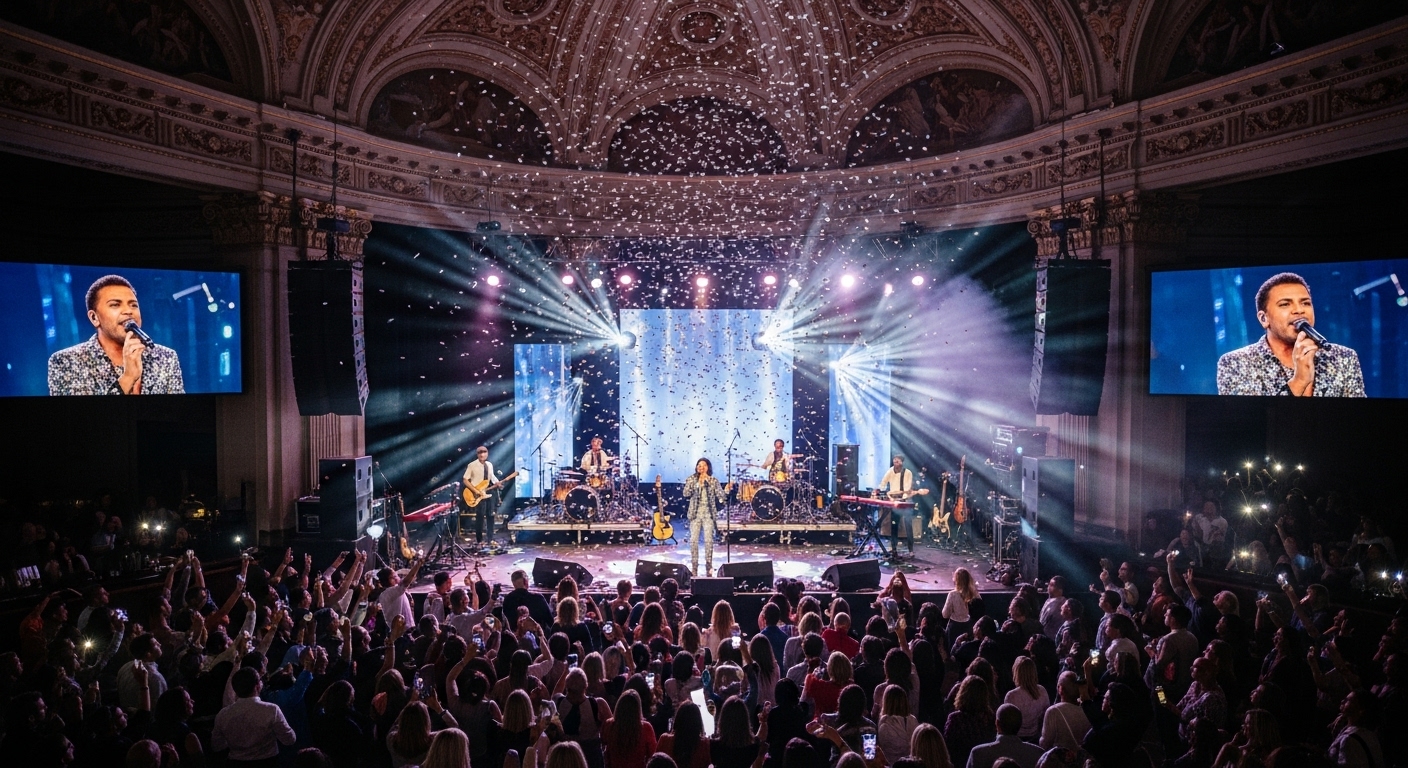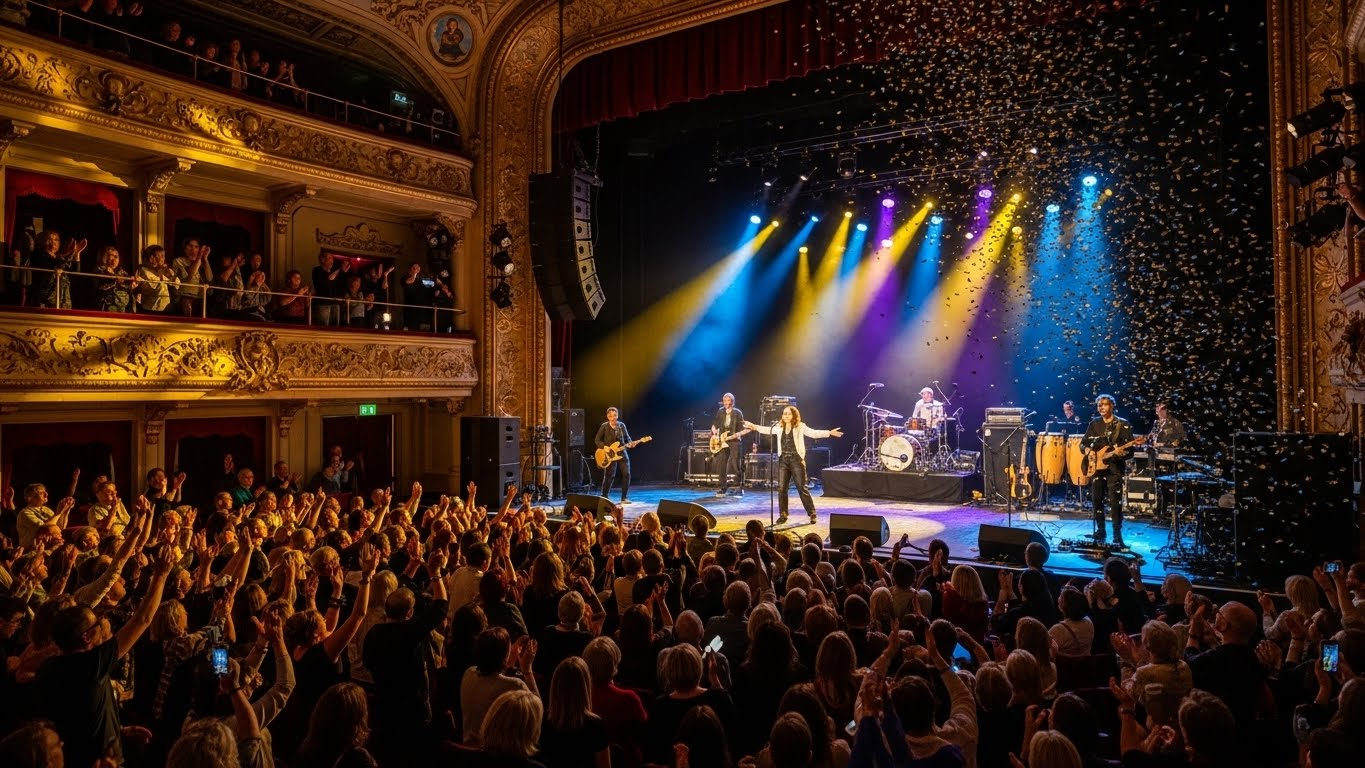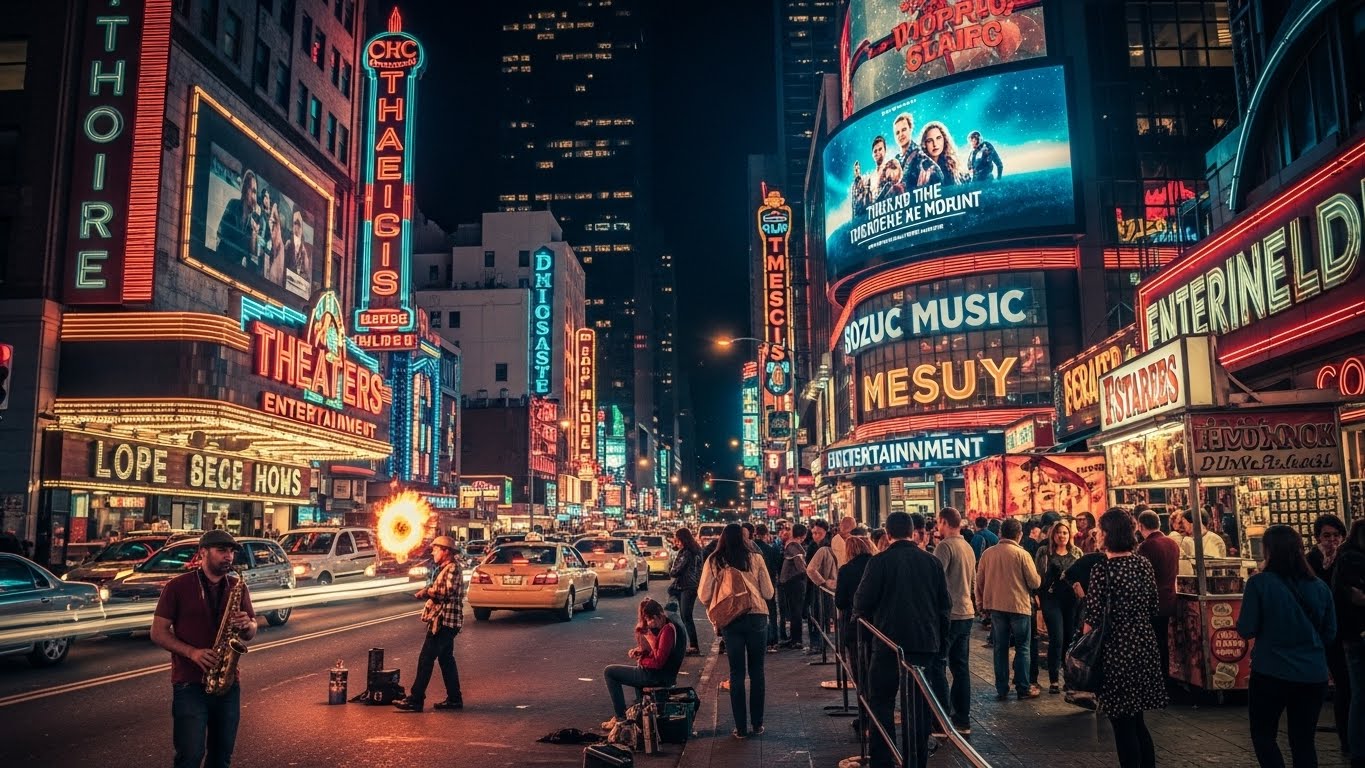Introduction to Entertainment
Entertainment is an inseparable part of human life. From ancient times when people gathered around fires to listen to stories, to today’s high-tech digital era filled with movies, music, television, and online content, entertainment has always been a way for people to escape reality, celebrate culture, and connect with each other. It is more than just passing time; it is about joy, emotions, imagination, and sometimes even education.
This blog explores the vast world of entertainment, looking at its history, its different forms, the role it plays in modern society, and its impact on our daily lives. We will also look into the future of entertainment and how technology is reshaping it.
The History of Entertainment
Entertainment is as old as humanity itself. In the earliest civilizations, entertainment came in the form of oral storytelling, music, dance, and rituals. Ancient Egyptians created plays and celebrated festivals, while Greeks invented theatre, turning storytelling into an art form that still influences modern cinema and stage performances.
In the Middle Ages, entertainment took new shapes. Kings and queens had court jesters, musicians, and performers to lighten the atmosphere. Street performances and fairs brought joy to ordinary people. With the invention of the printing press in the 15th century, books became more accessible, allowing entertainment to move from oral to written storytelling.
The industrial age changed everything. With technological progress came the creation of cinema, photography, radio, and later, television. These inventions turned entertainment into a global phenomenon, reaching millions at the same time. Today, we stand in a digital age where streaming services, social media, and virtual reality define entertainment in completely new ways.
The Magic of Cinema
Cinema is perhaps the most influential form of entertainment in the modern world. Movies bring stories to life on the big screen, combining visuals, sound, and acting to create experiences that can make us laugh, cry, dream, or even inspire us to change our lives.
From the silent films of Charlie Chaplin to the big-budget blockbusters of today, cinema has evolved dramatically. Hollywood became the hub of global filmmaking, producing iconic movies and stars. But cinema is not limited to one country. Bollywood in India, Nollywood in Nigeria, Korean cinema, and European films all contribute to the global entertainment landscape.
What makes cinema magical is its ability to reflect society while also providing an escape from it. Films address love, war, culture, identity, and countless other themes, making them both mirrors of reality and doors to imagination.
Television: The Everyday Companion
Television changed the way people consumed entertainment. Unlike cinema, which required people to go to theaters, television brought entertainment into living rooms. Families could gather after a long day to watch news, comedy shows, dramas, and sports together.
Classic shows became part of culture, and TV stars became household names. Over time, television expanded with satellite and cable, offering hundreds of channels. Today, television is blending with online platforms, as smart TVs allow streaming services to merge with traditional broadcasting. Despite changes, television remains an everyday companion for millions of people around the world.
Music: The Universal Language
Music is the heartbeat of entertainment. It transcends cultures, languages, and generations. A song can make you feel emotions words alone cannot express. From classical symphonies to modern pop hits, from folk traditions to hip-hop beats, music exists in endless forms.
Throughout history, music has played a role in religious rituals, social movements, and celebrations. The rise of the recording industry allowed music to spread globally, giving rise to legendary artists whose influence continues even after decades. In today’s world, music streaming platforms have made songs more accessible than ever, and new talents emerge every day.
Music also has therapeutic power. It heals, motivates, and brings communities together. Concerts, festivals, and live performances show the unifying strength of music, where thousands of people sing along in harmony.
Theatre and Performing Arts
Before the rise of cinema and television, theatre was the heart of entertainment. Even today, theatre holds a unique place because of its live nature. Watching actors perform on stage creates a different connection between performers and the audience.
Broadway, West End, and countless local theatres around the world keep the tradition alive. Plays, musicals, and performances continue to attract audiences who want to experience the raw emotions of live storytelling. Dance and opera are also powerful forms of performing arts, combining movement, music, and drama to entertain and inspire.
Sports as Entertainment
Entertainment is not limited to storytelling and performance; sports are one of the most popular forms of global entertainment. From football to cricket, basketball to tennis, billions of people watch games with passion and excitement. Sports unite fans, create heroes, and inspire teamwork and dedication.
Major events like the Olympics, World Cup, or Super Bowl attract global audiences and turn athletes into legends. Sports are more than just games; they are cultural events that bring nations together and give people unforgettable moments of joy.
Digital Entertainment: The New Era
The digital revolution has completely changed entertainment. Today, smartphones, laptops, and tablets serve as personal entertainment hubs. Streaming platforms offer movies, shows, and music on demand. Video-sharing platforms allow anyone to become a creator and share their content with the world.
Social media has also turned into a major source of entertainment. Short videos, memes, live streams, and interactive content keep people engaged daily. Gaming, too, has become a dominant force in digital entertainment, with millions of players enjoying both casual mobile games and large-scale online competitions.
This era has also introduced new challenges, such as the need to balance screen time and the spread of misinformation. However, it is undeniable that digital entertainment is shaping the way people spend their free time and consume content.
The Role of Celebrities
Celebrities are at the heart of entertainment. Whether they are actors, musicians, athletes, or influencers, their lives fascinate millions. Fans follow their careers, styles, and even personal lives. Celebrities can inspire trends, influence opinions, and sometimes even drive social change.
While fame brings admiration, it also brings challenges. The pressure of constant public attention can be overwhelming. Yet, celebrities remain a central figure in the entertainment industry, creating a sense of connection between art and audience.
The Business of Entertainment
Entertainment is not only about joy and creativity; it is also a massive global industry. Movies, music, sports, and digital platforms generate billions of dollars every year. Advertising, sponsorships, ticket sales, and merchandising all play roles in making entertainment a powerful economic force.
This business aspect has made entertainment highly competitive. Studios, streaming platforms, and production companies fight to grab audiences’ attention. At the same time, independent creators now have opportunities to reach audiences without big budgets, thanks to digital tools.
Entertainment and Culture
Entertainment is deeply connected with culture. Films, music, and performances often reflect the traditions, values, and struggles of societies. Through entertainment, cultures are preserved, celebrated, and shared with others. For example, traditional dances, folk music, and cultural festivals are powerful forms of entertainment that keep heritage alive.
Globalization has allowed cultural exchange through entertainment. People across the world can now enjoy movies, music, and shows from different cultures, promoting understanding and unity.
The Impact of Entertainment on Daily Life
Entertainment affects daily life in many ways. It helps people relax after stressful days, brings families and friends together, and provides learning opportunities through documentaries, educational shows, and cultural programs.
However, there are also debates about over-consumption. Too much screen time, addiction to games, or obsession with celebrity culture can have negative effects. Like everything in life, balance is important.
The Future of Entertainment
The future of entertainment looks even more exciting. Virtual reality, augmented reality, and artificial intelligence are reshaping the way content is created and consumed. Audiences may soon experience movies where they feel like part of the story or concerts where holograms perform live.
Gaming will become more immersive, and interactive shows will allow viewers to choose storylines. Artificial intelligence will also assist creators in developing new music, films, and experiences. Entertainment will become more personalized, adapting to individual preferences.
Why Entertainment Matters
At its core, entertainment is about joy, creativity, and human connection. It helps people escape stress, inspires them to dream, and reminds them of shared humanity. It is not just about fun; it is about culture, emotions, and the power of imagination.
From ancient stories told around fires to futuristic digital experiences, entertainment has always been with us, and it always will be.
Conclusion
Entertainment is a vast, colorful, and ever-evolving world. It includes cinema, television, music, theatre, sports, and now digital platforms that have changed the way people enjoy stories and performances. It connects cultures, inspires creativity, and brings happiness to billions.
As we move into the future, entertainment will continue to evolve, powered by technology but rooted in the same human desire for joy, stories, and connection. No matter how the world changes, entertainment will always remain a vital part of life.



